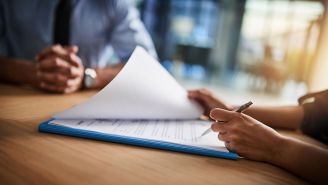Updated on November 28, 2023.
The holidays are the busiest time of the year for many people, often filled with festivities, family, and friends. But for some, the winter season brings an unwelcome guest: an increased risk of heart attack. Research has shown that more heart attack deaths occur around the holidays than in other months of the year.
But heart trauma does not have to be an inevitable part of the season. Here’s how to help maintain heart health and overall well-being during the winter months.
Be kind to your body
It's first helpful to understand who is at increased risk for a heart attack. This includes people who have already been diagnosed with heart disease, who have previously had a heart attack, who have been treated with stents, or who have had bypass surgeries, plus people who smoke and people with diabetes, according to Taral Patel, MD, a cardiologist in Hermitage, Tennessee. But even if this doesn’t describe you, your heart may not be as healthy as you think.
“A heart attack is not a singular event,” says Frank Arena, MD, a cardiologist in Covington, Louisiana. “It’s the end result of the culmination of a series of events. You have a heart attack because plaque has built up around the arteries over the course of years and years.”
How to maintain heart health: Eating a heart-healthy diet and getting regular exercise throughout the year can help keep problems at bay. If you have diabetes, it's important to work with your healthcare provider (HCP) to keep it under control. Smokers can give themselves the best gift of all by kicking the habit.
Take time to relax
The holiday season can be a celebratory time. But it can also bring added stress, such as from strained family relationships and overstretched finances.
“One thing that surprises me is how much stress and emotion play into it,” says Dr. Patel. “Mental and emotional stress is a huge factor that I think we downplay.”
Some people may even experience broken heart syndrome, which occurs when a sudden, stressful event—like the death of a loved one or a motor vehicle accident—leads to symptoms much like that of a heart attack, including chest pain and shortness of breath. While long-term damage doesn’t usually occur, if you have broken heart syndrome, it may be necessary to receive imaging tests and other diagnostics to make sure you haven’t had a heart attack.
Stress overload can also make it tough to get enough sleep, which can, in turn, lead to more stress and fuel overeating.
“Insomnia makes adrenaline levels go up, blood pressure goes up, and we get cravings for carbohydrate foods,” says Dr. Arena. “You may make poor dietary choices in the moment because you aren’t sleeping.”
How to reduce stress: Take time to relax. Try meditation to calm down. Make sleep a priority. With a calmer demeanor, you’ll be better equipped to handle family issues and make spending decisions. Getting enough shut-eye can also help maintain healthy levels of hormones related to appetite, including cortisol, ghrelin, and leptin.
Maintain your medications
If you regularly take medication to treat a chronic condition like heart disease, remember not to let your prescription go on vacation.
“We’re very busy during the holidays,” says Hoang Nguyen, DO, an interventional cardiologist in San Jose, California. “People forget to take their medication, they forget to check in with their doctor. Things like that tend to lead to heart attacks.”
How to keep your prescriptions on track: Don’t rely on your memory. Remember to take your pills by separating them into containers labeled for each day of the week. Set reminders in your phone. If you’re traveling, take the entire bottle of each medication with you in your carry-on bag. That way, if your return trip is delayed, you won’t run out. You’ll also have a list of your medications and dosage if needed.
Take it easy on the alcohol
Holiday parties often mean open bars and champagne toasts. They key is to celebrate in moderation.
“If you’re drinking a fair amount, say, more than two or three drinks or anything enough to give you a hangover, you’re creating a lot of adrenaline,” says Arena. This can lead to holiday heart syndrome, a form of atrial arrhythmia (irregular heartbeat) caused by alcohol consumption. “The buildup of adrenaline that comes when people overindulge and become dehydrated can contribute, which makes their hearts start pounding,” says Arena.
How to manage your alcohol intake: Avoid drinking on an empty stomach. Alternate sips with water to stay hydrated and to fill up faster. Skip sugary drinks, too. It's more difficult to tell how much alcohol you’re imbibing when drinks are loaded with extra flavors and mixers. You can also stay festive without the alcohol by sipping seltzer water garnished with a squeeze of fresh citrus.
If you have heart disease risk factors, you’ll want to take extra precautions to avoid holiday heart syndrome: Limit yourself to no more than two drinks per day for men and one for women, avoid overeating (which may trigger a response that can cause an arrhythmia), and limit caffeine.
Use caution during cold-weather activities
If you’re tempted to join the family for a sleigh ride or feel compelled to shovel snow, you may want to think twice, especially if you’re not physically active throughout the year.
“Winter activities can increase stress hormone levels and blood pressure,” which can add stress to the walls of blood vessels, warns Patel. Plaque that has accumulated along blood vessel walls can then rupture, creating a blood clot that travels through the bloodstream and causes a heart attack.
Cooler temperatures can also play a role in heart issues. “Even if you’re not shoveling snow and it’s not super cold, your arteries constrict a bit to keep your core warm,” Patel says. “That also increases blood pressure and stress on the blood vessels.”
How to stay safe in the cold: If you’re not used to lots of strenuous activity, limit your time outside, dress warmly, and don’t overexert yourself.
Don’t ignore the symptoms
If you just sat down for dinner or began exchanging gifts and you’re not feeling right, don't brush it off. Let someone know about your symptoms—and quickly. Don’t worry about ruining the moment. It it will only become worse if you’re actually having a heart attack.
Dr. Nguyen says heart attack symptoms like chest pain, discomfort, or shortness of breath require immediate medical attention. In these cases, call 911: “You should never ignore symptoms when it comes to the heart."







